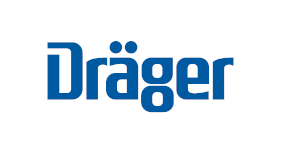Solutions to tackling obesity in Africa
9 April 2015: Statistics from the World Health Organisation show that more than 600 million adults across the globe are obese. South Africa is a leader in this alarming trend with about 61% of the population being overweight or obese. These statistics highlight the importance of addressing the disease on the African continent.
This is according to Professor Tess van der Merwe, Chair of the South African Society for Obesity and Metabolism and speaker at the Surgery Conference to be held as part of the Africa Health Exhibition & Congress 2015, who says that the rise in global obesity rates are presenting major public health issues for the future, especially in the developing worlds. “Obesity is growing on a global scale, faster than any other cause of disease, with South Africa being on the forefront of this growth on the African continent.”
While many countries are attempting to address the crisis by imposing taxes on fizzy drinks, with Japanese companies even issuing fines to overweight staff, Prof van der Merwe says that increased focus should be placed on the important role that metabolic and biariatric surgeries have in serious obesity cases on the continent.
She says that a lot of scepticism surrounded the topic of metabolic surgery during the last century but due to the large increase in the number of people with obesity, a successful long-term obesity management programme became a prerequisite. “Obesity is and always will be a chronic medical disease and not all obese patients are suitable surgical candidates. All patients need to be thoroughly assessed before and after the surgery.”
Prof van der Merwe explains that there are three types of bariatric / metabolic surgeries available to patients medically requiring surgery for weight loss. “These types of surgeries can be referred to as a group of procedures that involve the reduction or bypassing sections of the patient’s stomach, commonly used as a treatment method for obesity.”
Metabolic surgery has proven to dramatically improve glycemic control, which leads to complete resolution of Type 2 Diabetes in the majority of patients.
Prof van der Merwe says that the restrictive procedure limits intake and contains no intestinal bypass. “This includes gastric banding and sleeve gastrectomy. Lapbanding uses a silicone band, which is placed around the upper part of the stomach to create a small stomach pouch that can only hold a small amount of food. The food the patient consumes will pass through the upper stomach pouch to the lower pouch more slowly resulting in the patient feeling fuller for a longer period of time.”
She explains that the Roux-en-Y procedure is currently the most extensively performed bariatric procedure. “This is the most common type of malabsorptive and restrictive surgical procedure where a small stomach pouch in created to restrict food intake for the patient.”
A malabsorptive procedure involves bypassing a portion of the intestine in an effort to limit the amount of energy absorbed from the foods ingested by the patient. Most of these procedures combine an intestinal bypass with a restrictive procedure and has proven to be the most effective method of assuring long-term weight loss, points out Prof van der Merwe.
She explains that individuals who have already developed, or are facing an increased risk of developing obesity and its associated health complications, are in crucial need of obesity management programmes within the public and private healthcare sector. “Obesity needs to be viewed as a disease and should be adequately addressed in Africa as a whole to decrease the prevalence of the disease on the continent.”
The Surgery Conference is part the 5th annual Africa Health Exhibition & Congress, which is set to take place from 5th-7th May 2015 at the Gallagher Convention Centre in Johannesburg, South Africa.
Africa Health is supported by South African Nursing Council (SANC), the Alliance of South African Independent Practitioners (ASAIPA), The Council for Health Service Accreditation of Southern Africa (COHSASA) and Diabetes South Africa, as well as international healthcare giants such as Maquet, Draeger, GE Healthcare and Stiegelmeyer.























.png)












